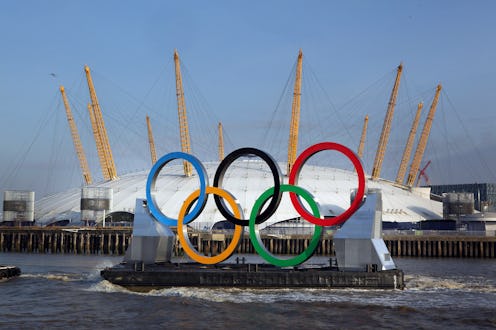News
The Olympics Won't Tolerate Homophobia
Great news for gay athletes with Olympic aspirations, and anyone who's not a fan of Putin: the International Olympic Committee has strengthened its charter against LGBT discrimination. The committee unanimously voted to formally add sexual orientation into their anti-discrimination clause. The decision comes nine months after the Sochi Olympics, which were marred by Russia's anti-gay legislation laws passed just before the games.
According to the Chicago Tribune, the new law reads:
The enjoyment of the rights and freedoms set forth in this Olympic Charter shall be secured without discrimination of any kind, such as race, color, sex, sexual orientation, language, religion, political or other opinion, national or social origin, property, birth or other status.
The clause will be included in every contract between the IOC and each host city, meaning incidents like Sochi will be more preventable going forward.
Hudson Taylor, Executive Director of Athlete Ally, told the Tribune:
There is no greater sign of progress in combating homophobia in sports than to have the oldest organized athletic competition in the history of the world saying enough is enough.
Vladimir Putin's anti-gay laws violated the clause even without the change, but it happened too close to the event itself for the IOC to really do anything about it. Now, should a host country or city choose to do something similar, they will face serious consequences.
Or at least, hopefully they will. While the change has been formally made to the charter, it has not yet been decided how the law will be enforced going forward. Will countries and cities found perpetrating LGBT discrimination lose their Olympic bid? Will they be subjected to massive fines? It is not all that clear.
Luckily for the IOC, the 2022 Winter Olympics will most definitely be the first opportunity to test out the new charter. The finalists in the competition for host city are Beijing, China and Almaty, Kazakhstan. Neither country has distinct anti-LGBT laws, but both are generally unwelcoming toward the LGBT community. Additionally, Kazakhstan has been mulling over passing laws similar to Russia's.
All LGBT athletes and advocates can hope for now is that the IOC will put its money where its mouth is when it comes to negotiating with the next host city. If they are going to prioritize the safety of LGBT individuals with their words, they need to also make sure they do it with their actions when the time comes — no matter how uncomfortable or difficult it might be.
Images: Getty Images (1)
